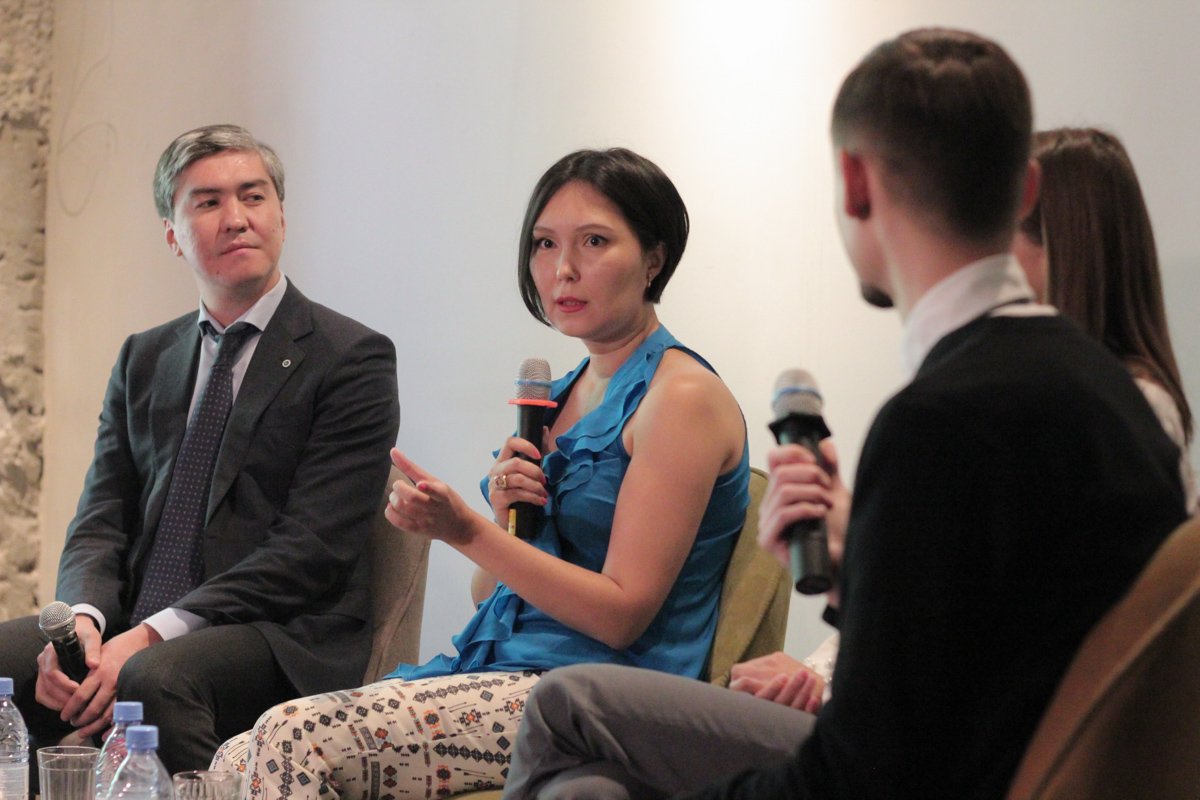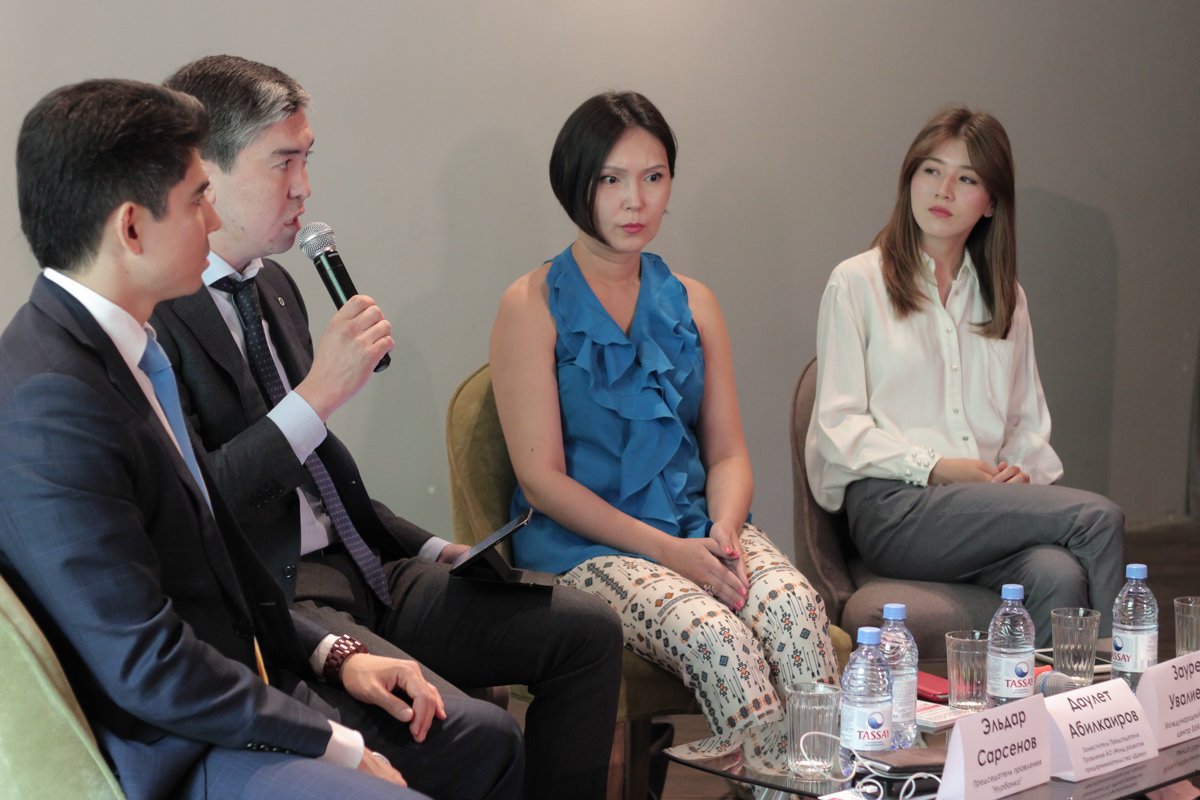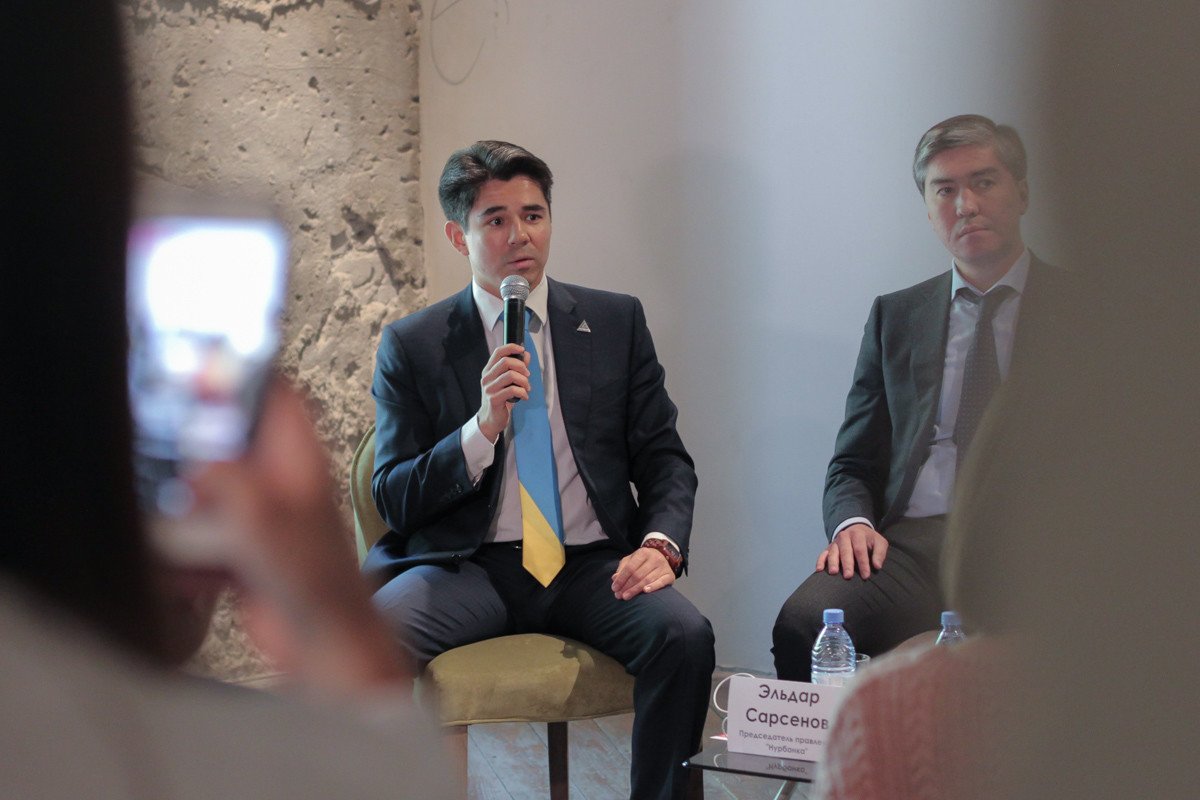
The middle class and small entrepreneurs are the foundation of stability in the developed economies of the world, which Kazakhstan has been striving to join for at least the past decade. Last week, experts and businessmen open discussed at the Vласть online magazine platform where new entrepreneurs can find funds for development, why it is most reasonable to utilize state support in this case, and how to properly approach the specifics of domestic banks' operations with credit applications.
As soon as the discussion began, Daulet Abilqairov, Deputy Chairman of the Board of the Business Development Fund "Damu", stated: "There are no liquidity problems at all. The question is how ready our entrepreneurs are to take loans. Because, according to statistics, we have 1.1 million registered active entrepreneurs today, of which about 600 thousand are active. Of these, about 300 thousand entrepreneurs have any connection with the credit system. Out of these 300 thousand, about 35 thousand use state support."
The Chairman of the Board of Directors of "Nurbank", Eldar Sarsenov, explained why state support for business is generally necessary. In his view, funding business (especially small) with taxpayers' money is "more than right", as middle or large businessmen are interesting to many, while not all are willing to work with startups.
"Nurbank has always been a proponent of supporting the younger generation. The bank is one of the first financial institutions in the country to start lending to promising startup projects as part of the productive employment and mass entrepreneurship program," Sarsenov explained. Under this program, the interest rate on loans is 6% per annum with a financing term of up to 5 years. The head of the bank emphasized that by the end of May, 129 promising projects had already been financed on such terms, and he expressed the opinion that not taking advantage of such favorable opportunities is simply "unwise".

One of those who appreciated its merits was entrepreneur Zaure Uvalieva, who opened the International Educational Center EdAccess. After being denied by one of the banks, the nascent businesswoman, armed with knowledge of the new "Damu" fund program, turned to "Nurbank". "I received a loan in November 2017. "Nurbank" approved financing for me for 18 million tenge to acquire non-residential premises where the international educational center EdAccess will start operating in the fall of 2018, which will promote the British education program in the domestic market and is already enrolling students for the 2018-2019 school year," Uvalieva said.
In turn, the head of "Nurbank" explained why banks need time to make a positive verdict. "The long time to review applications is related to the fact that money is becoming cheaper," Sarsenov said. The chairman of the bank's board emphasized that shackles are exactly those loans at 56% that "are processed over one lunch break". Therefore, he is convinced, bureaucracy is necessary: it ensures the stability of the system regardless of the human factor. "During the application review, we analyze the financial condition of the borrower and guarantor, conduct a legal examination of the founding documents, collateral examination, analyze the business plan, and so on," Sarsenov said, noting that "Nurbank" is working on shortening the application review period for small businesses using the "Damu Blitz" technology, which will allow obtaining microloans of up to 30 million tenge in the shortest possible time.

A representative of the "Damu" fund also encouraged new entrepreneurs by announcing that by the end of the year, the electronic government platform would offer a system reflecting all actions related to a specific application. Abilqairov explained: "online, we will see when a person submitted an application, how many days the bank has been reviewing it, and the decision on the application, and in case of rejection, the reason".
In the story of Dildy Abisheva, founder of the floral company Dildiny, the stumbling block on the way to obtaining a preferential loan was the need for collateral. "With insufficient collateral, we offer our clients the option to use the "Damu" guarantee instrument, where an entrepreneur with more than three years of experience can receive a guarantee of up to 50% of the loan amount, and a novice entrepreneur can secure up to 85% of the loan amount," noted in response the head of "Nurbank". He also explained why Kazakhstani banks are forced to insist on fulfilling the collateral requirement: first, in most cases, the discipline and financial literacy of both business clients and individuals do not allow the financial institution to rely entirely on their credit history when issuing loans. Secondly, he said, this issue should be considered from the perspective of banking margin.

In this regard, Sarsenov reminded that "Damu", according to the business lending program's terms, does not allow banks to earn more than 5% on entrepreneurial loans, then added: "You can easily take at least 3% as costs for risk, administrative expenses, salaries - 1.5%, and as a result, we have a margin of around 0.5-0.8% on any state program <...> As a result, if we have no collateral and we lend out 100 million tenge, and the client goes into default, international financial reporting standards and the National Bank require us to form provisions for that loan, which went into default. They are taken from net income and put into a reserve, which is closed and does not bring any income. So we, besides not receiving income from the issued amount, also have to cover the loss formed by provisions with net money."
"Damu" business development fund guarantees, according to entrepreneurs present at the discussion, are not sufficient for all banks. The Deputy Chairman of the fund informed that, in fact, for the last five years, the guarantee institute has been "picking up speed". Today, according to him, "Damu" issues about 4.5 thousand guarantees a year, and for banks, only one condition was left under which financial institutions could impose penalties - the guarantee must be targeted. Abilqairov also expressed his opinion on why some banks do not want to lend to businessmen with "Damu" guarantees: "Perhaps they were more interested in taking more collateral from you, rather than taking guarantees." Sarsenov, in his turn, advised new entrepreneurs to apply for credit applications to at least three or four banks at once.